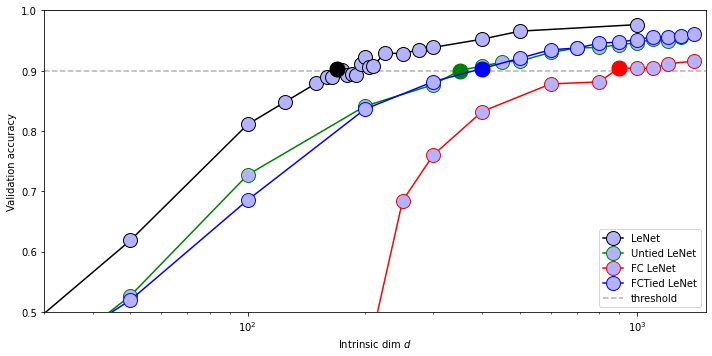Fastfood: Approximate Kernel Expansions in Loglinear Time
Despite their successes, what makes kernel methods difficult to use in many large scale problems is the fact that storing and computing the decision function is typically expensive, especially at prediction time. In this paper, we overcome this difficulty by proposing Fastfood, an approximation that accelerates such computation significantly. Key to Fastfood is the observation that Hadamard matrices, when combined with diagonal Gaussian matrices, exhibit properties similar to dense Gaussian random matrices. Yet unlike the latter, Hadamard and diagonal matrices are inexpensive to multiply and store. These two matrices can be used in lieu of Gaussian matrices in Random Kitchen Sinks proposed by Rahimi and Recht (2009) and thereby speeding up the computation for a large range of kernel functions. Specifically, Fastfood requires O(n log d) time and O(n) storage to compute n non-linear basis functions in d dimensions, a significant improvement from O(nd) computation and storage, without sacrificing accuracy. Our method applies to any translation invariant and any dot-product kernel, such as the popular RBF kernels and polynomial kernels. We prove that the approximation is unbiased and has low variance. Experiments show that we achieve similar accuracy to full kernel expansions and Random Kitchen Sinks while being 100x faster and using 1000x less memory. These improvements, especially in terms of memory usage, make kernel methods more practical for applications that have large training sets and/or require real-time prediction.
PDF Abstract

 CIFAR-10
CIFAR-10